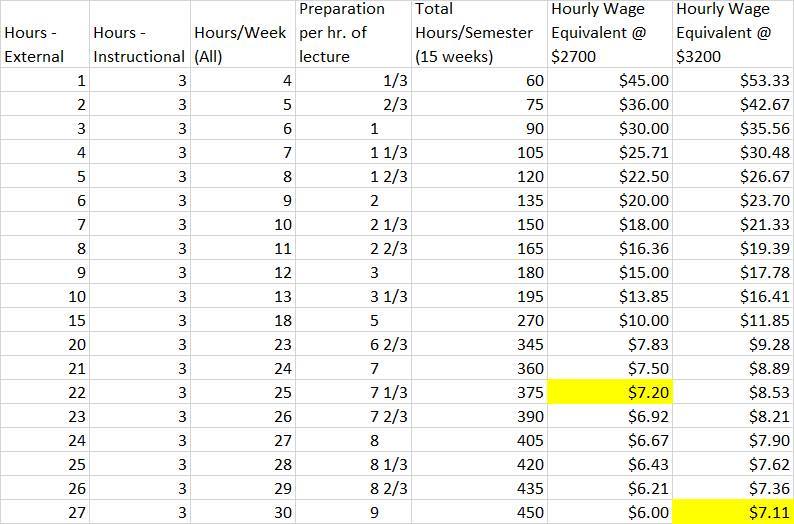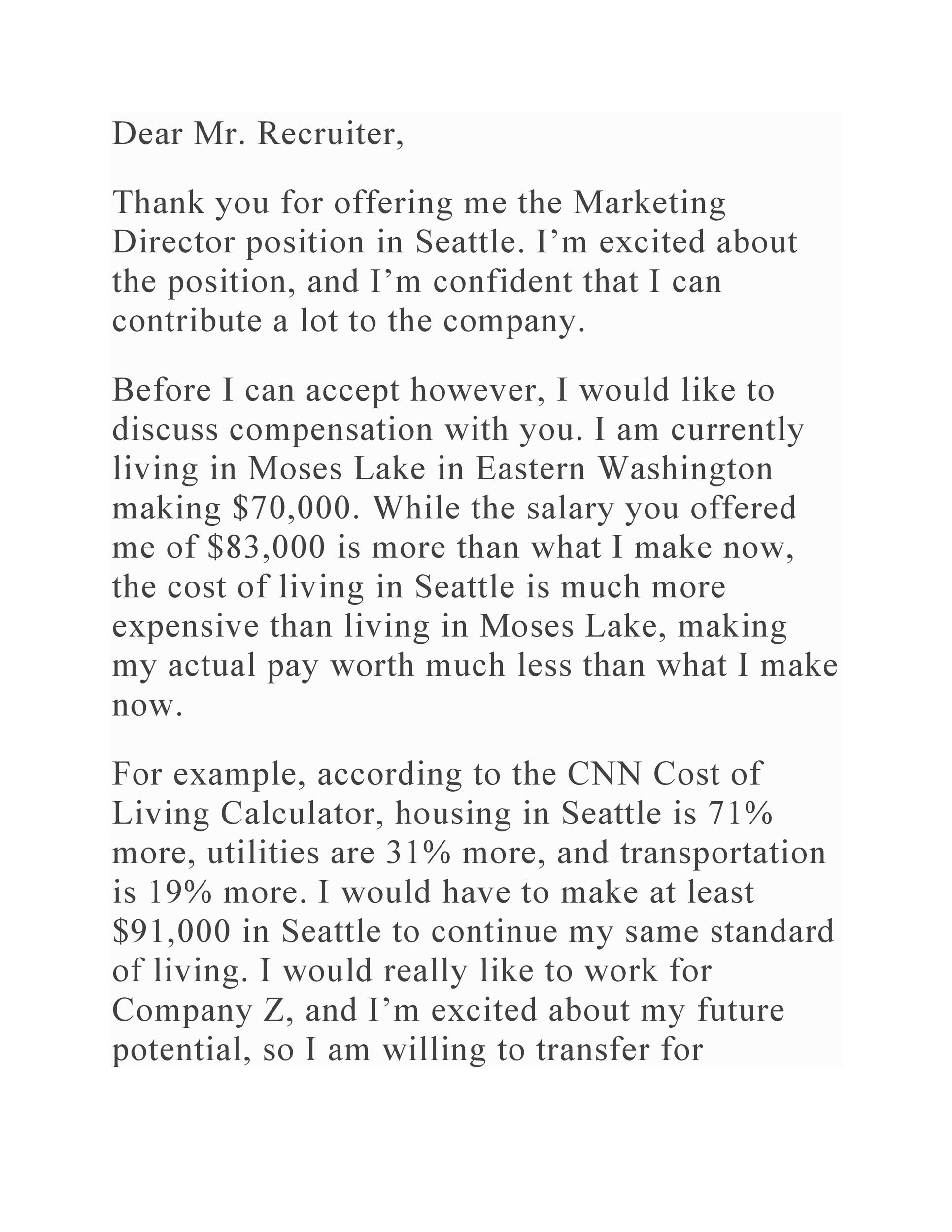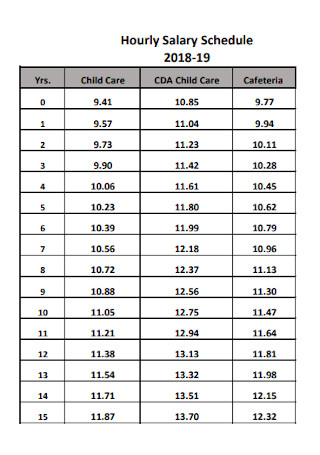What Does a $15 an Hour Salary Really Mean?
A $15 an hour salary is a significant milestone for many workers, representing a decent wage that can provide a comfortable lifestyle. But what does this salary really mean in terms of annual earnings and financial stability? To put it into perspective, a $15 an hour salary translates to around $31,200 per year, assuming a 40-hour workweek and 52 weeks of work per year. This is a substantial income that can cover basic needs, such as housing, food, and transportation, and also leave some room for savings and discretionary spending.
However, the impact of a $15 an hour salary on lifestyle and financial stability varies greatly depending on the location, cost of living, and individual circumstances. For instance, in cities with a high cost of living, such as New York or San Francisco, a $15 an hour salary may not be enough to cover basic needs, let alone provide a comfortable lifestyle. On the other hand, in cities with a lower cost of living, such as Des Moines or Omaha, a $15 an hour salary can provide a relatively high standard of living.
In terms of financial stability, a $15 an hour salary can provide a sense of security and predictability, allowing individuals to budget and plan for the future. However, it’s essential to note that a $15 an hour salary may not be enough to cover unexpected expenses or financial emergencies, highlighting the importance of building an emergency fund and having a financial safety net.
Overall, a $15 an hour salary is a significant achievement that can provide a comfortable lifestyle and financial stability, but its impact varies greatly depending on individual circumstances and location. As the cost of living continues to rise, it’s essential to consider the purchasing power of a $15 an hour salary and how it can be maximized to achieve long-term financial goals.
How to Make the Most of a $15 an Hour Job
While a $15 an hour salary can provide a comfortable lifestyle, there are ways to maximize earnings and benefits from a job paying this wage. One strategy is to take advantage of overtime opportunities, which can significantly boost earnings. Many employers offer overtime pay, which can range from 1.5 to 2 times the regular hourly rate. By working extra hours, individuals can increase their earnings and improve their financial stability.
Another way to make the most of a $15 an hour job is to pursue bonuses and incentives. Some employers offer bonuses for meeting performance targets, completing projects, or achieving specific goals. By understanding the bonus structure and working towards these goals, individuals can earn additional income and enhance their job satisfaction.
Career advancement is also a key aspect of making the most of a $15 an hour job. By developing new skills, taking on additional responsibilities, and seeking out promotions, individuals can increase their earning potential and improve their job prospects. This can involve pursuing certifications, attending training programs, or seeking out mentorship opportunities.
Additionally, individuals can make the most of a $15 an hour job by negotiating benefits and perks. This can include health insurance, retirement plans, and paid time off. By understanding the benefits package and negotiating with their employer, individuals can improve their overall compensation and job satisfaction.
Finally, individuals can make the most of a $15 an hour job by seeking out new job opportunities. By researching the job market, networking with professionals, and applying for jobs that match their skills and experience, individuals can increase their earning potential and improve their career prospects.
Overall, making the most of a $15 an hour job requires a combination of strategies, including taking advantage of overtime opportunities, pursuing bonuses and incentives, career advancement, negotiating benefits and perks, and seeking out new job opportunities. By employing these strategies, individuals can maximize their earnings and benefits and improve their overall job satisfaction.
The Pros and Cons of a $15 an Hour Salary
Earning a salary of $15 an hour can have both positive and negative effects on an individual’s life. On the one hand, a $15 an hour salary can provide a decent standard of living, allowing individuals to cover their basic needs and enjoy some discretionary income. This can lead to improved job satisfaction, reduced stress, and a better overall quality of life.
On the other hand, a $15 an hour salary may not be enough to cover all expenses, particularly in areas with a high cost of living. For example, individuals living in cities like New York or San Francisco may find it difficult to afford housing, transportation, and other necessities on a $15 an hour salary. This can lead to financial stress, reduced job satisfaction, and a lower overall quality of life.
In terms of taxes, a $15 an hour salary may be subject to a higher tax bracket, depending on the individual’s filing status and other factors. This can result in a higher tax liability, reducing the individual’s take-home pay and overall financial stability.
Benefits are another important consideration for individuals earning a $15 an hour salary. While some employers may offer comprehensive benefits packages, including health insurance, retirement plans, and paid time off, others may not. This can leave individuals vulnerable to financial shocks, such as medical emergencies or unexpected expenses.
Overall, the pros and cons of a $15 an hour salary depend on a variety of factors, including the individual’s lifestyle, location, and financial goals. While a $15 an hour salary can provide a decent standard of living, it may not be enough to cover all expenses, particularly in areas with a high cost of living. By carefully considering the pros and cons, individuals can make informed decisions about their career and financial goals.
It’s also worth noting that a $15 an hour salary can be a stepping stone to higher-paying jobs and career advancement opportunities. By gaining experience, developing new skills, and building a professional network, individuals can increase their earning potential and improve their overall job satisfaction.
Jobs That Pay $15 an Hour: A Closer Look
There are many jobs that pay around $15 an hour, offering a range of opportunities for individuals to earn a decent income. Some examples of jobs that pay $15 an hour include:
Customer Service Representatives: Many companies hire customer service representatives to handle customer inquiries, resolve issues, and provide support. This job typically requires excellent communication skills, a positive attitude, and the ability to work in a fast-paced environment.
Data Entry Clerks: Data entry clerks are responsible for entering information into computer systems, maintaining accurate records, and performing administrative tasks. This job requires attention to detail, basic computer skills, and the ability to work independently.
Warehouse Workers: Warehouse workers are responsible for receiving, storing, and shipping products. This job requires physical stamina, attention to detail, and the ability to work in a team environment.
Food Service Workers: Food service workers are responsible for preparing and serving food, handling customer transactions, and maintaining a clean and safe environment. This job requires excellent communication skills, a positive attitude, and the ability to work in a fast-paced environment.
Administrative Assistants: Administrative assistants provide administrative support to managers, executives, and other staff members. This job requires excellent communication skills, basic computer skills, and the ability to work independently.
These jobs offer a range of benefits, including competitive pay, opportunities for advancement, and a sense of job satisfaction. However, it’s essential to note that salaries can vary depending on the location, employer, and industry.
In addition to these jobs, there are many other opportunities that pay around $15 an hour. Some examples include:
Bank Tellers: Bank tellers are responsible for handling customer transactions, maintaining accurate records, and providing customer service.
Retail Sales Associates: Retail sales associates are responsible for assisting customers, processing transactions, and maintaining a clean and safe environment.
Call Center Agents: Call center agents are responsible for handling customer inquiries, resolving issues, and providing support.
These jobs offer a range of benefits, including competitive pay, opportunities for advancement, and a sense of job satisfaction.
How to Negotiate a Higher Salary
Negotiating a higher salary can be a challenging but rewarding experience. When it comes to negotiating a salary above $15 an hour, there are several strategies that can help. First, it’s essential to research market rates to determine a fair salary range. This can be done by using online resources such as Glassdoor or Payscale to determine the average salary for similar positions in the area.
Next, it’s crucial to prepare for negotiations by making a list of accomplishments and qualifications. This can include education, work experience, and any relevant skills or certifications. By highlighting these strengths, individuals can make a strong case for a higher salary.
When negotiating, it’s also important to be confident and assertive. This can be done by using phrases such as “I believe my skills and experience warrant a salary of $X per hour” or “I’m looking for a salary that reflects my value to the company.” By being confident and assertive, individuals can increase their chances of getting a higher salary.
Another strategy is to focus on the benefits of the job, rather than just the salary. This can include things like health insurance, retirement plans, and paid time off. By highlighting the benefits of the job, individuals can make a stronger case for a higher salary.
Finally, it’s essential to be open to compromise. Negotiating a salary is a give-and-take process, and individuals may need to be flexible in order to reach an agreement. By being open to compromise, individuals can increase their chances of getting a higher salary.
Some examples of negotiation scripts that can be used when negotiating a salary above $15 an hour include:
“I’ve done some research and found that the average salary for this position in the area is $X per hour. I believe my skills and experience warrant a salary at or above this rate.”
“I’m excited about the opportunity to work for this company, but I’m looking for a salary that reflects my value to the organization. I believe a salary of $X per hour would be more in line with industry standards.”
“I understand that the company may not be able to offer a salary above $15 an hour at this time. However, I’m willing to consider other benefits such as additional vacation time or a more comprehensive health insurance plan.”
The Impact of Location on $15 an Hour Salaries
Location plays a significant role in determining the purchasing power of a $15 an hour salary. The cost of living in different cities and regions can vary greatly, affecting the amount of money that can be spent on goods and services. For example, a $15 an hour salary in a city like New York or San Francisco may not go as far as it would in a city like Des Moines or Omaha.
According to data from the Council for Community and Economic Research, the cost of living index for different cities and regions varies greatly. For example, the cost of living index for New York City is 146.4, while the cost of living index for Des Moines is 92.4. This means that a $15 an hour salary in New York City would have to be adjusted upward to maintain the same standard of living as a $15 an hour salary in Des Moines.
Another factor to consider is the cost of housing. In cities with high housing costs, such as San Francisco or Los Angeles, a $15 an hour salary may not be enough to cover the cost of rent or mortgage payments. In contrast, cities with lower housing costs, such as Kansas City or St. Louis, may offer a more affordable lifestyle for individuals earning a $15 an hour salary.
Transportation costs are also an important consideration. In cities with high transportation costs, such as New York City or Chicago, a $15 an hour salary may not be enough to cover the cost of owning and maintaining a vehicle. In contrast, cities with lower transportation costs, such as Portland or Denver, may offer a more affordable lifestyle for individuals earning a $15 an hour salary.
Overall, the impact of location on $15 an hour salaries is significant. Individuals earning a $15 an hour salary in different cities and regions may have different standards of living and purchasing power. By considering the cost of living, housing costs, and transportation costs, individuals can better understand the impact of location on their salary and make informed decisions about their career and lifestyle.
Some examples of cities and regions with high and low costs of living include:
High-cost cities:
New York City, NY (cost of living index: 146.4)
San Francisco, CA (cost of living index: 144.4)
Los Angeles, CA (cost of living index: 134.6)
Low-cost cities:
Des Moines, IA (cost of living index: 92.4)
Omaha, NE (cost of living index: 91.7)
Kansas City, MO (cost of living index: 87.2)
Benefits and Perks to Expect with a $15 an Hour Job
Jobs that pay $15 an hour often come with a range of benefits and perks that can enhance the overall compensation package. Some common benefits and perks that may be included with a $15 an hour job include:
Health Insurance: Many employers offer health insurance to their employees, which can help cover the cost of medical expenses. This can be a valuable benefit, especially for individuals who may not have access to health insurance through other means.
Retirement Plans: Some employers offer retirement plans, such as 401(k) or pension plans, which can help employees save for their future. These plans may also include employer matching contributions, which can help employees build their retirement savings more quickly.
Paid Time Off: Paid time off, including vacation days and sick leave, can be a valuable benefit for employees. This can help employees recharge and avoid burnout, which can improve their overall well-being and job satisfaction.
Other Benefits: Some employers may offer other benefits, such as life insurance, disability insurance, or employee assistance programs. These benefits can provide additional financial security and support for employees.
Perks: In addition to benefits, some employers may offer perks, such as flexible scheduling, telecommuting options, or on-site amenities like gyms or cafeterias. These perks can enhance the overall work experience and make the job more enjoyable and convenient.
It’s worth noting that the specific benefits and perks offered can vary widely depending on the employer and the job. Some employers may offer more comprehensive benefits packages, while others may offer fewer benefits or more limited perks.
When evaluating a job that pays $15 an hour, it’s essential to consider the overall compensation package, including benefits and perks. This can help employees make a more informed decision about whether the job is a good fit for their needs and goals.
Some examples of jobs that may offer benefits and perks include:
Customer Service Representatives: Many companies offer benefits and perks to their customer service representatives, including health insurance, retirement plans, and paid time off.
Data Entry Clerks: Data entry clerks may be eligible for benefits and perks, such as flexible scheduling and telecommuting options, which can enhance their work experience and job satisfaction.
Warehouse Workers: Warehouse workers may be offered benefits and perks, such as on-site amenities like gyms or cafeterias, which can improve their overall well-being and job satisfaction.
Career Advancement Opportunities with a $15 an Hour Salary
A $15 an hour salary can be a stepping stone to career advancement and professional growth. With experience and skills gained in a $15 an hour job, individuals can pursue opportunities for promotions, raises, and new job openings.
One way to advance in a career with a $15 an hour salary is to seek out promotions within the current company. Many companies offer opportunities for advancement to employees who have demonstrated their value and commitment to the organization. This can include promotions to supervisory or management roles, or specialized positions that require specific skills or training.
Another way to advance in a career with a $15 an hour salary is to pursue new job openings that offer higher pay and greater opportunities for growth. This can include jobs in different industries or companies, or jobs that require specialized skills or training.
In addition to promotions and new job openings, individuals with a $15 an hour salary can also pursue opportunities for professional growth and development. This can include training and education programs, certifications, and networking opportunities.
Some examples of career advancement opportunities with a $15 an hour salary include:
Promotions to supervisory or management roles: Many companies offer opportunities for advancement to employees who have demonstrated their value and commitment to the organization.
New job openings: Individuals with a $15 an hour salary can pursue new job openings that offer higher pay and greater opportunities for growth.
Professional growth and development: Individuals with a $15 an hour salary can pursue opportunities for professional growth and development, including training and education programs, certifications, and networking opportunities.
Some industries that may offer career advancement opportunities with a $15 an hour salary include:
Healthcare: The healthcare industry offers a range of career advancement opportunities, including promotions to supervisory or management roles, and specialized positions that require specific skills or training.
Technology: The technology industry offers a range of career advancement opportunities, including promotions to supervisory or management roles, and specialized positions that require specific skills or training.
Finance: The finance industry offers a range of career advancement opportunities, including promotions to supervisory or management roles, and specialized positions that require specific skills or training.








